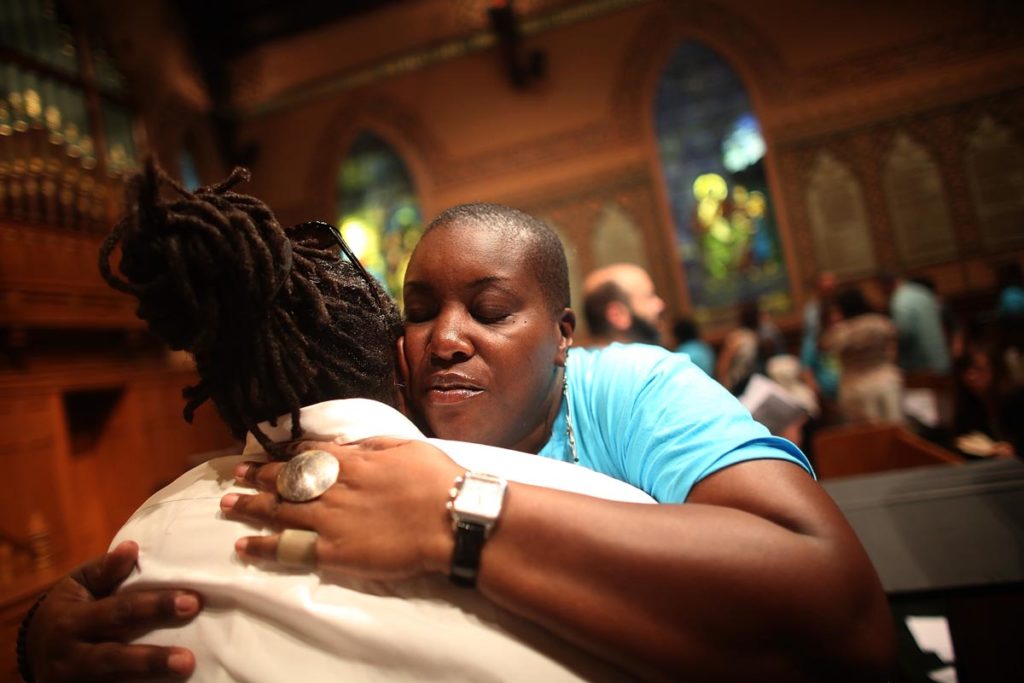
Healing in the Midst of Tragedy: How Can Black Folks Keep Surviving in the Face of Constant Trauma?
October 13, 2015Photo by Mario Tama/Getty Images
The church has always been a huge part of my life. Before I joined the junior choir, I would sit in the choir stand with my mom, not even tall enough for my little head to be above the pew. I would sing along to the classic Gospel songs that I knew by heart. I always made a point to remember the scripture of the week for our youth pastor and to know all the books of the Bible for our Bible study teacher. I was the youth superintendent of Sunday school and was a junior usher. The church gave me a platform to grow into a role of leadership, which is so rare for little Black girls. Church is where I discovered my love of music. Church is the place where I found some of the most solace while going through depression in my adolescent years. Growing up in the church shaped the way I navigate the world and understand myself.
When I got the news of the Charleston massacre, it shook me to my core. Even though it wasn’t my former church or my family, it felt like it was, because the possibility of being my church and family seemed so real and close to home. And with all of the invalid excuses that people use to try to justify the racist genocidal traumas that Black folks face, I couldn’t fathom how folks could excuse this. And my heart grew even heavier with the news of eight Black churches burning down in the following days. I kept asking myself, “”How could someone violate these safe places and commit such violent acts?”
I know and understand church is not a safe place for many of us, but historically for Black folks, church has been a sanctuary, free of the white gaze. It has been a place for Black folks to be free and be in community with each other. I think of the elders in my family and how churches served as their first schools because of the racist history of the education system in this nation. I think of the history of the church I grew up in which spans almost 200 years. I think of how I partially grew into myself inside the walls of my church and how much of a safe and sacred place I found it to be.